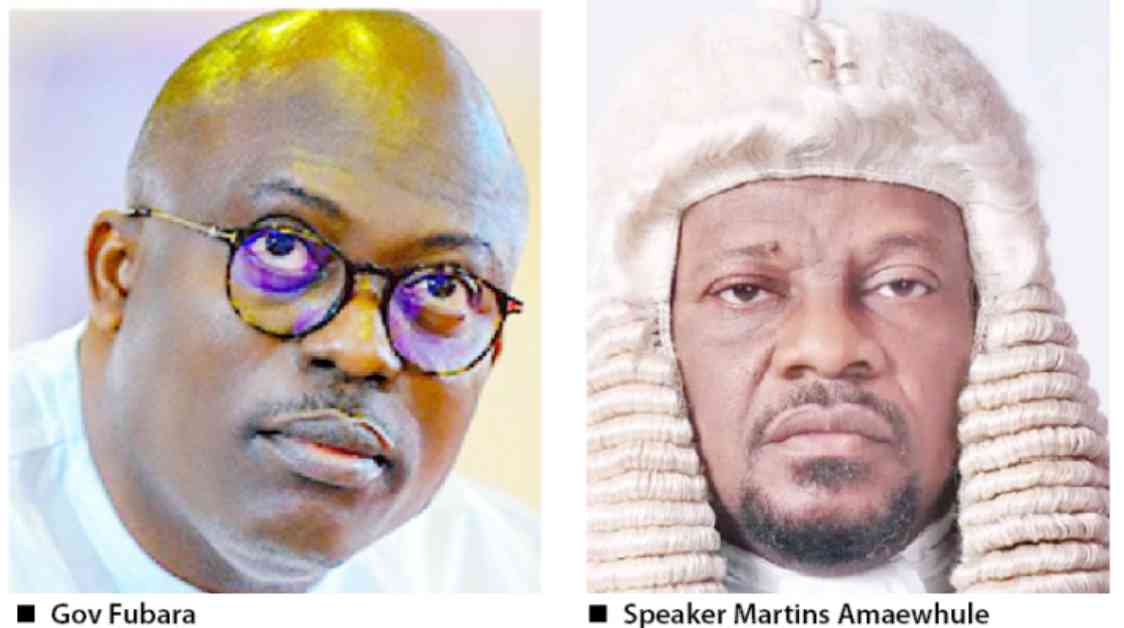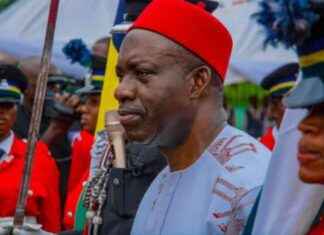The Rivers State government has downplayed the impeachment move against Governor Siminalayi Fubara and his deputy, Professor Ngozi Odu, insisting that there is no formal communication from the state House of Assembly regarding allegations of gross misconduct.
In a recent notice dated March 14, the assembly, led by Speaker Martins Amaewhule and dominated by 27 pro-Wike lawmakers, outlined allegations against Fubara and Odu. The letter, signed by 26 lawmakers, accused the governor of reckless expenditure, obstructing the assembly, and making appointments without legislative approval, among other claims.
On Monday, Speaker Amaewhule announced the formal transmission of the notice to the governor and his deputy, citing Section 188 of the 1999 Constitution (as amended), which mandates that impeachment allegations be signed by at least one-third of house members. He also directed Fubara and Odu to respond to the allegations within the stipulated period of 14 days.
However, Rivers State Commissioner for Information and Communication, Barrister Joseph Johnson, dismissed the move, stating that the letter was not addressed to the governor. Johnson criticized the assembly for obstructing Fubara’s efforts to implement the Supreme Court’s recent judgment on the state’s prolonged political crisis, further exacerbating the hardships faced by civil servants and pensioners due to the seized state allocation.
Fubara had demonstrated his commitment to obeying the court’s decision by directing local government chairmen to hand over to their administrative heads. In compliance with the ruling, the Rivers State Independent Electoral Commission (RSIEC) had also scheduled fresh elections for August 9, 2025.
### Expert Insights on the Constitutional Implications
This is the second impeachment attempt against the governor, with the first occurring on October 30, 2023, resulting in significant unrest and the eventual demolition of parts of the assembly complex. Governor Fubara claimed he narrowly escaped an assassination attempt during these events.
In a related development, the assembly has petitioned the Economic and Financial Crimes Commission (EFCC) to investigate Secretary to the State Government (SSG), Dr Tammy Danagogo, over allegations of extra-budgetary spending. The lawmakers also called on the EFCC to probe financial misconduct allegedly linked to Danagogo.
Reacting to the impeachment move, Senior Advocate of Nigeria Abeni Mohammed explained that removing a governor and deputy is a constitutional process that must be strictly followed. The governor can challenge the lawmakers in court to restrain any impeachment proceedings if they have breached the constitution themselves.
Similarly, Taiye Oniyide (SAN) called for restraint, emphasizing that both sides must prioritize the state’s interests over personal conflicts. This crisis has become unnecessarily personal, and reasonable voices are urging caution.
In conclusion, the political turmoil in Rivers State underscores the delicate balance of power and constitutional obligations that must be adhered to in times of crisis. The implications of these events extend beyond political maneuvering to the very fabric of governance and the well-being of the people. The unfolding drama serves as a stark reminder of the importance of upholding the rule of law in the face of adversity and personal agendas. Let us hope that wisdom and prudence prevail in the days to come.















